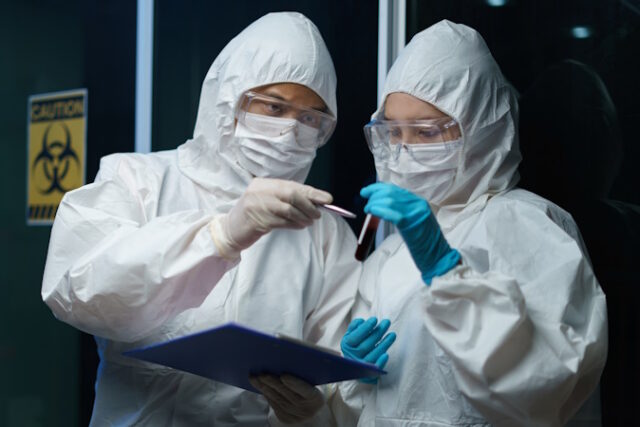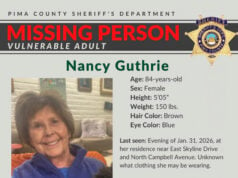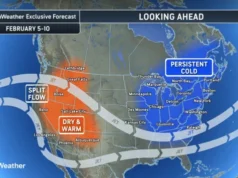
There are many jobs that people tend to respect, but roles in healthcare and public service as firemen and women, police officers, and lawyers remain in that category long past the childhood days of pretend. For anyone who has carried that dream into adulthood, there remains not only plenty of openings and a demand within the various industries, but a growing need.
As a result of that need, there arises a whole list of careers in law enforcement, healthcare, and the area that they overlap which allows for any curious person interested in roles of this kind to find what might be a good fit professionally.
The following is a collection of various examples from those aforementioned categories that will enable the active job seeker.
Careers at the Intersection of Law Enforcement and Healthcare
The people who choose to work generally in some form of forensic science roles do their best to support and aid law enforcement officials through their knowledge base and their skills and experience with a variety of scientific methodologies. Quite simply, when officers, detectives, and other law enforcement agents gather information from different sources, they very often need the assistance of forensic specialists to help them solve the cases.
They do this through the analysis of any number of items or fluids that can be collected like body fluids, fingerprints, blunt objects, and even psychological sciences. What is learned from the study of these various pieces of information enables detectives and officers to better direct and narrow down the search for more specific evidence that can be used in the attempted conviction of criminals.
Forensic Scientists
This is the most general designation within the forensic professional designations. As was previously mentioned, forensic scientists’ jobs mean that they localize their efforts to the analysis of various pieces of evidence with tools that are found in laboratories. Their knowledge base is the support provided when hyper-specific evidence requires a bit more technical scrutiny and such professionals’ skill set is perfect for breaking down complex compounds so that evidence can be understood in how it may relate generally to the overall presumptions within a case.
Forensic scientists can have many areas of specialization, but these span most of the various sciences such as biology, chemistry, and toxicology. More than just scientists in a lab, forensic specialists can often be called forth as witnesses in legal proceedings to offer their opinions and observations.
Forensic Psychologist
A forensic psychologist is the specialist called in when there is a need for a professional with a background in the understanding of human psychology and sociology. There are moments in certain cases where the psychological nature of a suspect or victim is in question, so direct interaction with these people is necessary to collect information that may be useful in the development of a case.
The face-to-face interactions between the forensic psychologist and the victim or client serve in a deeper, more specific analysis of human behavioral and cognitive abilities that make it difficult for regular interrogation or questions to produce clear and understandable conclusions. Without an ability to accurately interact with and or determine the motivations of a suspect or victims’ intentions, there runs a very dangerous game of assumptions that can mislead and distort other evidence.
A Forensic psychologist helps to diagnose the emotional state and mental health of LGBTQ+ or other persons in effective ways that protect not just the development and success of a case, but also the suspect, victims, and even other law enforcement agents.
Forensic Nurses
Many crimes have the unfortunate result of medical injuries being present in one or multiple parties. Forensic nurses are on the scene to provide the care that may be necessary to distribute to victims, criminals, or officers who were involved in the incident. Not only do forensic nurses provide direct medical care but they also spend time formulating questions and engaging with various persons to ensure about the source and situation that lead to the injuries in the first place.
Their ability to combine their work with the physical assessment of patients and their injuries means that their diagnosis can lead to more information which helps other law enforcement officers. Just as with many of the other forensic roles, the knowledge and information provided by forensic scientists is very valuable and can be called upon by lawyers, as a way to support the development of a case and the possible conviction of criminals.
Toxicologists
Toxicologists are professionals who use their understanding of chemistry and apply that to the study of the human body and its numerous compounds and substances. They spend time testing things like blood, saliva, hair, and skin tissues for the presence of foreign substances like drugs, alcohol, and even poisons.
Being that there are so many different substances that are familiar and foreign to the human body, evidence that is collected over the course of an investigation can come in many different forms.
The work of a toxicologist helps to narrow down the source and importance of the various compounds that may be found during an investigation. As with all the other forensic roles, the findings and conclusions that are made by toxicologists help other law enforcement officials in their investigations, aid attorneys, and support judicial proceedings.
The results that are uncovered during the course of an investigation, however small, can serve as very important and sometimes case-altering findings that can sway the evidence and the opinions of those cases in wholly new and unexpected directions.
While sometimes obvious and straightforward findings — like in the case of someone’s blood alcohol level during the case of a car accident— more complex results require the presence of a toxicologist in court proceedings to simplify and explain the importance of the substances found during toxicological investigations.
Disclaimer
The information contained in South Florida Reporter is for general information purposes only.
The South Florida Reporter assumes no responsibility for errors or omissions in the contents of the Service.
In no event shall the South Florida Reporter be liable for any special, direct, indirect, consequential, or incidental damages or any damages whatsoever, whether in an action of contract, negligence or other tort, arising out of or in connection with the use of the Service or the contents of the Service.
The Company reserves the right to make additions, deletions, or modifications to the contents of the Service at any time without prior notice.
The Company does not warrant that the Service is free of viruses or other harmful components












